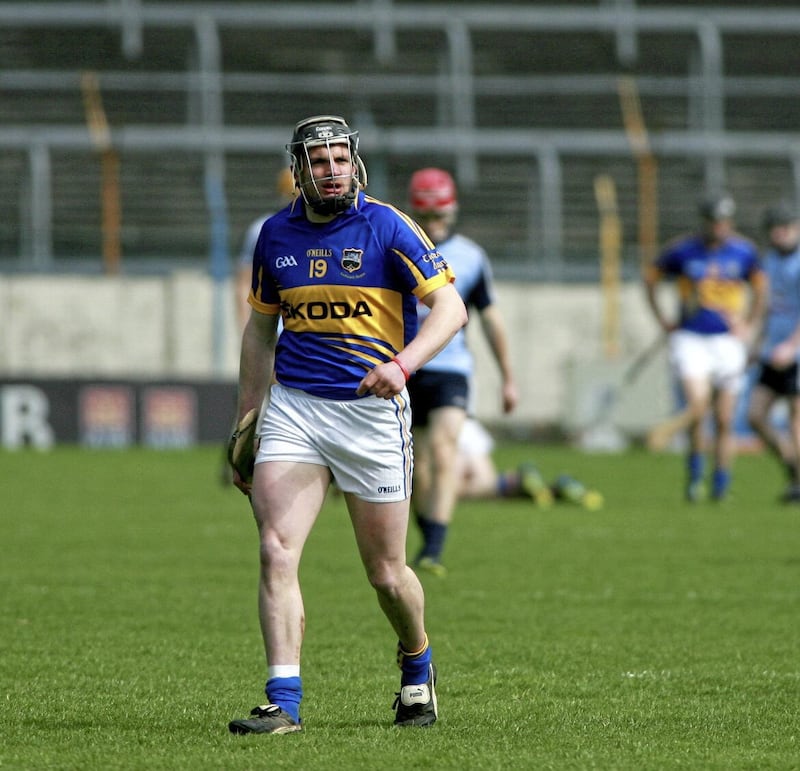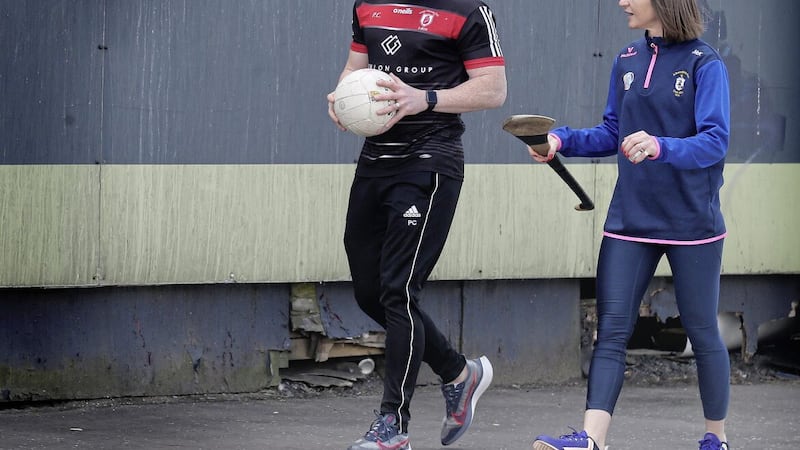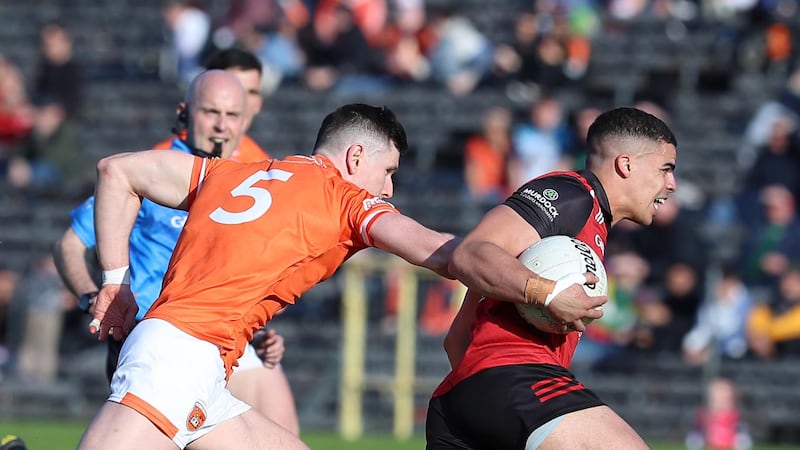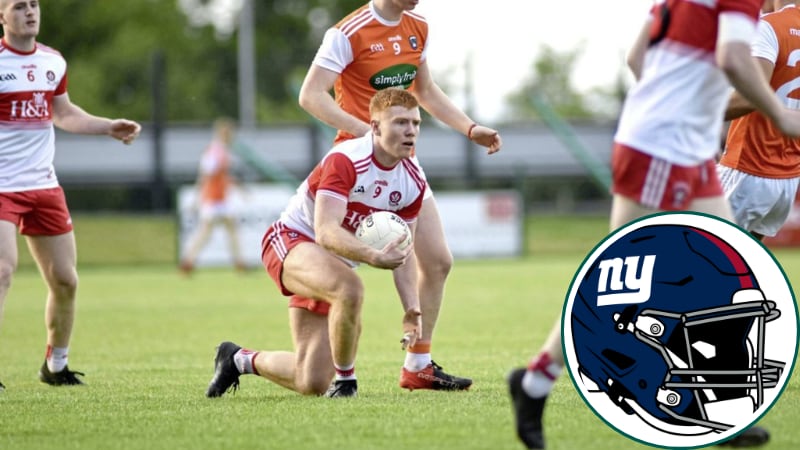I WAS honoured to chair a Gaels Le Chéile discussion as part of Féile an Phobail in St Mary’s University last Friday evening.
It was the second year running, interested observers came to the Falls Road college to learn about Gaels Le Chéile, how it was conceived and what its aims and objectives are.
Antrim Gaels Jane Adams and Paddy Cunningham – both of whom came up with the Gael-on-Gael initiative that wants to see the GAA play its part in the national discussion surrounding Irish unity – were on the panel alongside fellow Gaels Le Chéile members: former Tipperary hurler Timmy Hammersley, Kerry native and former Offaly senior football manager Stephen Wallace, O’Donovan Rossa GAC, Belfast chairperson Margaret Flynn and Carrickmore footballer Niamh McElduff.
Jarlath Burns, the GAA’s next president, was among the audience.
It was an enlightening 60-minutes plus that flew by.
With each passing year, Féile an Phobail becomes an increasingly important platform for authentic, thought-provoking discussion about political, social, economic and cultural life on our island.
It's a far-cry from the foghorn, 'gotcha' journalism that sometimes has a habit of wringing the sound-bites from these Féile discussions and manufacturing controversy out of them.
A lot of the time, this passes for media discourse here. I know this to be true, as I’ve worked in the local media for 24 years.
It's self-perpetuating and becomes tiresome after a while.
A lot press officers are their own worst enemy too. They buy into the mock hysteria and, as a consequence, political and civic leaders become sanitised versions of themselves.
The tragedy in all of this is that real debate falls off the cliff.
We rarely hear perspective or reasoned analysis - we just hear the noise.
That's why it's critically important to preserve and expand the democratic space Féile provides each year and not be sucked into the faux outrage of sections of the media.
Since its inception, Gaels Le Chéile has been open to similar ridicule.
Its dissenters argue that GAA members should stick to playing their sports, stay out of the political arena and leave the constitutional issues to the politicians.
But, perhaps the reason why a pressure group like Gaels Le Chéile - if it can be described as such - emerged in the first instance was because of the ongoing failure of mainstream politics here.
Why shouldn’t GAA members engage in the most important debate of our time?
Why shouldn’t they demand more from the political establishment?
One of the objectives of Gaels Le Chéile is to see the establishment of a fully inclusive citizens’ assembly.
Why shouldn’t citizens of this island – whether they’re GAA members or not – put their heads ‘above the parapet’ and add their voice to the constitutional discussion, particularly when the British government de-invest in our public services with ravaging effects?
Why should a trade union leader be derided for having the temerity to consider the potential health service benefits in the event of reunification?
Is it not prudent to confer with a health expert like Pat Cullen who walks the understaffed wards of our hospitals and knows the absolute state of them?
And yet the Ulster Unionist Party feels compelled to draft a press release asking for clarification over what Mrs Cullen said at - yes, you guessed it - a Féile discussion event, rather than engaging in the merits of the debate and listening to her expert perspective on how to create a better health service for everybody on the island.
Pat Cullen’s contribution to the Féile debate was an act of citizenship. Nothing more, nothing less.
We should be encouraging other areas of civic society to find their voice rather than them pressing the opt-out clause because they just might provide the necessary expertise and lateral thinking political parties need to mould a vision for the future.
Calls for Irish unity has never been more nuanced.
It's too convenient nowadays to categorise the debate in crude ideological, religious terms and painting the south as some kind of hostile state when in fact the sitting government in Leinster House is funding 250 student nurses in the north and, through the £1bn Shared Ireland slush fund, is contributing significantly to improving infrastructure and educational life here.
These are shattering times we’re living in as post-Brexit continues to bite hard and the cost-of-living crisis impoverishes people and their communities.
In a few years’ time, we might be wondering how on earth the GAA at a central level stayed behind the wire for so long instead of being on the sidelines cajoling, persuading, encouraging and envisioning a better future for this island and having members sit on the citizens assembly so boldly imagined by Gaels Le Chéile.
Indeed, Timmy Hammersley made the very salient point during last Friday’s discussion that at some point Ulster GAA must grasp the perceived nettle and support the campaign, and other provincial councils would follow.
In an initiative that has its roots in Antrim, where members of both the senior and hurling inter-county panels signed the letter addressed to the sitting Taoiseach of the day, urging discussion on constitutional change, Gaels Le Chéile has now amassed 20,000 signatories.
Earlier this week, Dublin footballer Paddy Small signed the letter.
A day later, Kerry footballer and Aussie Rules ace Stefan Okunbor, who attended last Friday’s discussion, signed the letter.
Still in its infancy, Gaels Le Chéile has built up significant momentum over the last 12 months.
Each signature is an act of citizenship from individuals who are willing to explore a better way, a better version of ourselves.
The foghorns will rage long into the night – but it shouldn’t stop creative thinking among us.
Jane Adams and Paddy Cunningham are living proof.









